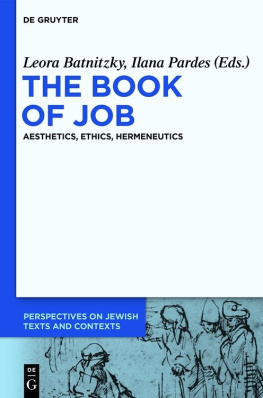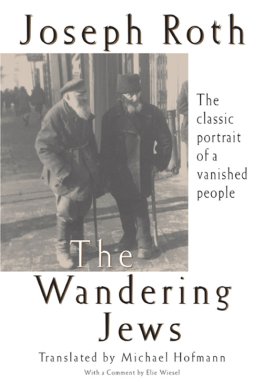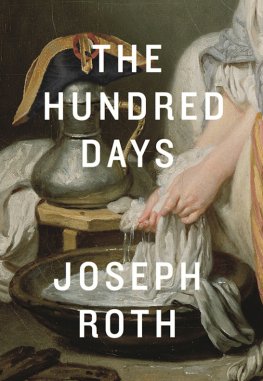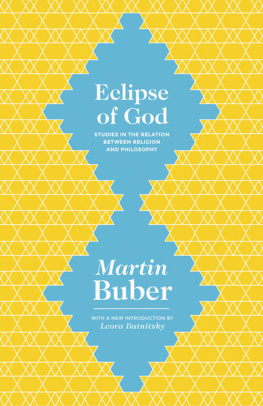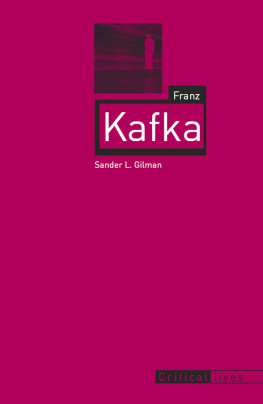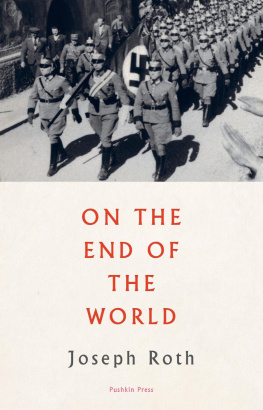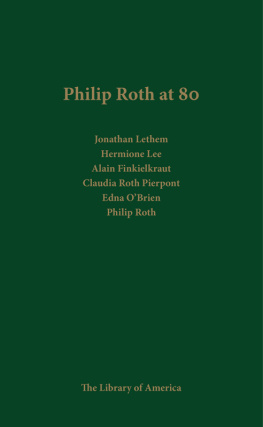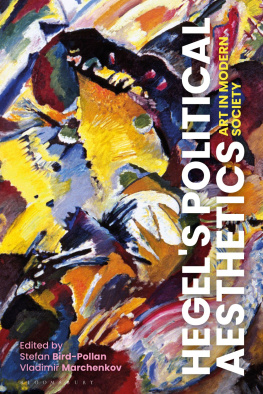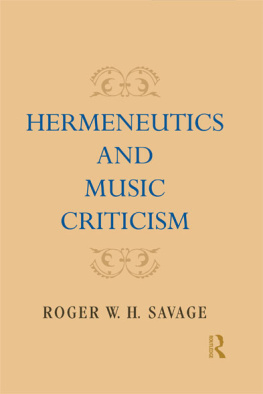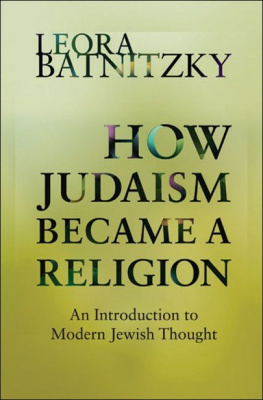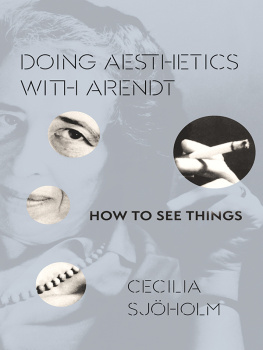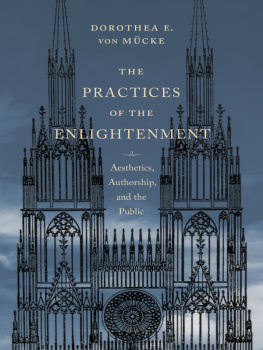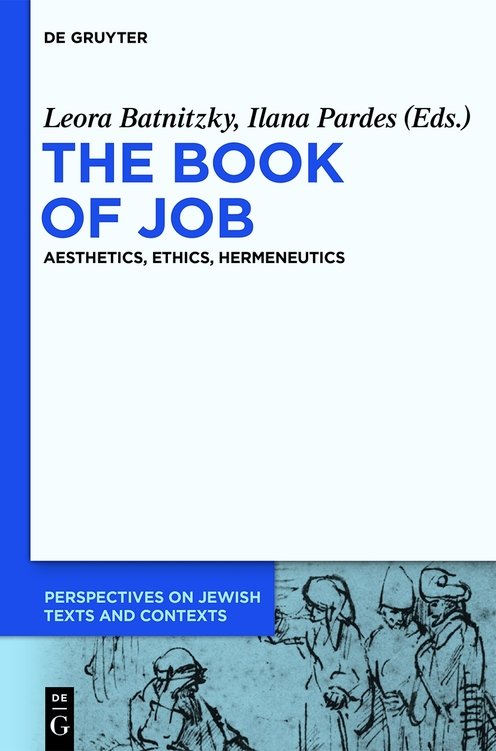This book had its beginnings in a conference on the Book of Job that was held at Princeton University in October 2012 as part of a collaborative project between the University of Antwerp, the Hebrew University, and Princeton University. We are grateful to the Program of Jewish Studies and the Department of Religion at Princeton University for hosting the conference. We also wish to thank Jeremy Schreiber for his fine copy editing, Katja Lehming and De Gruyter Press for their support, and Vivian Liska for her energetic intellectual leadership on this book series.
L. B. and I. P.
Notes on Contributors
Robert Alter is Emeritus Professor of Hebrew and Comparative Literature at the University of California, Berkeley, and Director of the Center for Jewish Studies there. He has written widely on literary aspects of the Bible, on modern Hebrew literature, and on the European and American novel.
Leora Batnitzky is Ronald O. Perelman Professor of Jewish Studies and Professor and Chair of Religion at Princeton University. She is the author of Idolatry and Representation: The Philosophy of Franz Rosenzweig Reconsidered (2000); Leo Strauss and Emmanuel Levinas: Philosophy and the Politics of Revelation (2006) and How Judaism Became a Religion (2011).
Moshe Halbertal is Professor of Jewish Thought and Philosophy at the Hebrew University of Jerusalem and the Gruss Professor of Law at New York University. His latest books are On Sacrifice (2012) and Maimonides: Life and Thought (2013).
Galit Hasan-Rokem is Max and Margarethe Grunwald Professor of Folklore and Professor (emerita) of Hebrew Literature at the Hebrew University of Jerusalem. Her books include: Web of Life: Folklore and Midrash in Rabbinic Literature (2000) and Tales of the Neighborhood: Jewish Narrative Dialogues in Late Antiquity (2003).
Ariel Hirschfeld is Professor of Hebrew Literature at the Hebrew University. His books include: Notes on a Place (2000), Toward the Last of the Gods: The Fountains of Rome (2003), Notes on Epiphany (2006), and Reading S. Y. Agnon (2011).
Vivian Liska is Professor of German literature, Director of the Institute of Jewish Studies at the University of Antwerp, Belgium, Distinguished Visiting Professor at Hebrew University in Jerusalem and on the Visiting Staff of the Graduate Center at NYU. Her publications include Die Nacht der Hymnen (1993), Das schelmische Erhabene (1998), Giorgio Agambens leerer Messianismus (2008), When Kafka Says We (2009), and Fremde Gemeinschaft. Deutsch judische Literatur der Moderne (2011). She is the editor of the book series Perspectives on Jewish Texts and Contexts, De Gruyter, Berlin.
Naphtali Meshel is Assistant Professor of Religion and Judaic Studies at Princeton University. His research pertains to the Hebrew Bible and to Israelite religion within a comparative framework. He is the author of A Grammar of Ritual (2014), which examines the claim that rituals are governed by grammars analogous to those of natural languages-an idea first perceived by the classical Sanskrit grammarians and pursued in recent anthropological studies.
Ilana Pardes is Katherine Cornell Professor of Comparative Literature at the Hebrew University of Jerusalem. She is the author of Countertraditions in the Bible: A Feminist Approach (1992), The Biography of Ancient Israel: National Narratives in the Bible (2000), Melvilles Bibles (2008) and Agnons Moonstruck Lovers: The Song of Songs in Israeli Culture (2013).
Yosefa Raz is a post-doctoral fellow at the Center for Jewish Studies at the University of Toronto. Her research focuses on biblical prophecy and its reception in modernist Hebrew poetry. She is also the author of a book of poetry, In Exchange for a Homeland (2004).
Freddie Rokem is the Emanuel Herzikowitz Professor for 19th and 20th Century Art and teaches in the Department of Theatre Studies at Tel Aviv University. His publications include Performing History: Theatrical Representations of the Past in Contemporary Theatre (2000), Strindbergs Secret Codes was published by Norvik Press (2004) and Philosophers and Thespians: Thinking Performance, exploring the relations between the discursive practices of philosophy and performance (2010).
Leora Batnitzky and Ilana Pardes
The Book of Job: Aesthetics, Ethics, and Hermeneutics
The Book of Job has held a central role in defining the project of modernity from the age of Enlightenment until today. What makes the Book of Job such a prominent text in modern literature and thought? Why has Jobs response to disaster become a touchstone for modern reflections on catastrophic events? What sort of answer (if any) can the Voice from the Whirlwind offer in a post-theological age? How have modern and postmodern thinkers and artists translated Jobs social critique to address ethical and political concerns? What are the interrelations between traditional conceptions of Job as a parable and modern Joban parables? How does Jobs aesthetic legacy function as a key element in defining the cry of modern witnesses? To what extent can aesthetic inquiries within religious realms modify our perceptions of religious texts and religious experience and, vice versa, to what extent does religion allow or compel us to open up the concept of the aesthetic?
The Bible has not always been venerated as an aesthetic touchstone. The literary Bible emerged in the eighteenth century, in England and in Germany, as the invention of scholars and literati who tried to rejuvenate the Bible by transforming it from a book justified by theology to one justified by culture. The aim of this post-theological project was not quite to secularize the Bible though it was now construed as the product of human imagination but rather to reconstitute its authority in aesthetic terms. The Book of Job played a vital role in enhancing this transformation. Jonathan Sheehan goes so far as to trace what he calls a Job revival within the context of English and German Enlightenment, a revival that included numerous new translations and scholarly studies of the text. Indeed, the Book of Job acquired so prominent a position as an aesthetic touchstone that Edmund Burke evoked it, in A Philosophical Enquiry into the Sublime and the Beautiful (1757), as an exemplary text for the exploration of the sublime experience in its relation to power and terror.
J. G. Herder, one of the German forerunners of the literary approach to the Bible, devoted an entire section of his renowned The Spirit of Hebrew Poetry (1782-1783) to Job. In response to Burke, Herder reinterpreted the sublimity of the Book of Job as pertaining to the realms of the heart, of vision, and of vivid Oriental imagination. Gods whirlwind poem, for Herder, is the poetic epitome of Job, for like the Oriental descriptions of nature it awakens a love, an interest, and a sympathy for all that lives.
What wretch, in the greatest tumult of his passions, in walking under a starry heaven, would not experience imperceptibly and even against his will a soothing influence from the elevating contemplation of its silent, unchangeable, and everlasting splendors. Suppose at such a moment there occurs to his thoughts the simple language of God, Canst thou bind together the bands of the Pleiades, etc. is it not as if God himself addressed the words to him from the starry firmament? Such an effect has the true poetry of nature, the fair interpreter of the nature of God. A hint, a single word, in the spirit of such poetry often suggests to the mind extended scenes, nor does it merely bring their quiet pictures before the eye in their outward lineaments, but brings them home to the sympathies of the heart.

